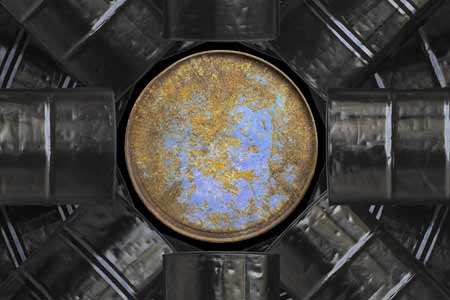
Rubbish Art
Issue 57 June 2009
Plastic bags and barbie dolls may not sound like ideal subjects for art, but the creative approach of Photographic artist Chris Jordan has inspired waves of media attention. he speaks candidly with Remona Aly about waking up to a glaring reality.
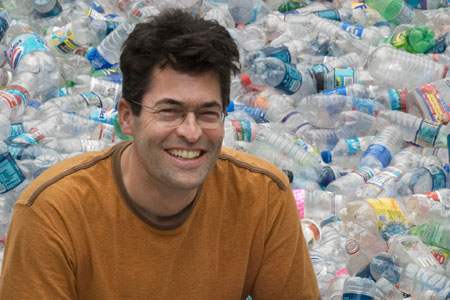
You can curse the darkness or you can light a candle. That’s what someone said to him once, and this flicker of hope made more sense to him now than it would have done even a decade ago. He tells me he had been asleep all his life up until six years ago. It was right in front of his nose, affecting him more profoundly than he imagined, yet he could not, did not want to, acknowledge it.
But I am getting ahead of myself. Just as in this world and what we make of it, we are running when we should be walking. We should need less, when all we crave is more and more. The ‘he’ I speak of is a man whose life is now committed to waking people up, to making us see what is right in front of our eyes. For the last six years of his life, Chris Jordan has grasped, through his photographic art, the collective impact mankind has on this planet. How many photographers will point their cameras towards landfills, take images of plastic bottle piles, of scores of aluminium cans, of the rubbish people throw away to remain out of sight, and ‘recycle’ them as informative art? What is it that makes him carry on with unwavering commitment in the face of such a daunting, mammoth phenomenon itself? Chris says the path he took was almost ‘accidental’. Others might call it fate.
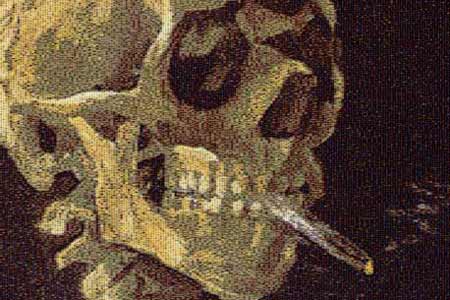
It is inevitable that Chris can be described as a very ‘down to earth’ kind of guy. A retired lawyer, but active photographer-artist, he resides in Washington, United States. His artistic parentage – his father is a photographer and his mother, a water colour painter – lends the turning point in his life a prophetic air. One day, his attention was drawn to the colour in a huge pile of garbage, which appeared to him as an impressionist painting, so he got his camera out and captured his shot. A friend later saw the image and began talking of consumerism, something Chris hadn’t wanted to convey at all. For 20 years, he had been taking pictures that ‘looked pretty’, but had no meaning. That was all to change.
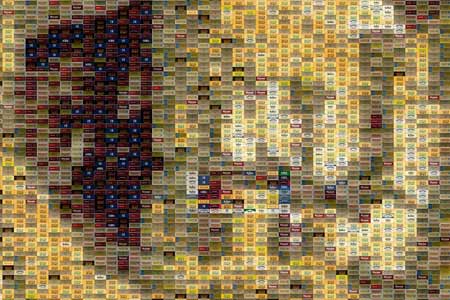
“I discovered to my astonishment that there had been people awake to this issue for hundreds of years. They had been warning us about the damaging effect of over-consumption on our environment, on our culture and our individual spirits. For me, it was like waking up to the Matrix.” Chris is no environ-‘mentalist’; this is no tirade. It’s a measured, logical presentation of facts and numbers that smother the earth, statistics we each contribute towards. And Chris certainly doesn’t want to lay on a guilt trip. Rather, he wants to affect an awakening. His growing fascination with the subject of consumerism paralleled an increasing alarm over its consequences. The more he read about the price the planet had to pay, the more he realised he had been a “very unhappy, angry and alienated American”. It became clear to him very quickly that the pursuit of happiness was not derived from materialism. He had been sucked into a pattern of psychological consumerism that is dictated to many of us. The social conditioning of having the newest mobile or the latest laptop is creating a dissatisfied society, as each item is relentlessly replaced in a continuous conveyer belt of consumerism. This was the cycle Chris broke away from – he no longer wished to live in denial.
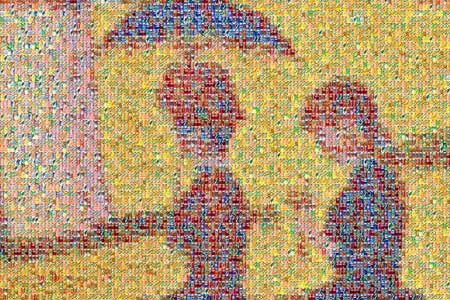
“When you ask yourself, what difference can I possibly make? What if I clean up my act but no one else does, how then can the world be healed? – you can never make a difference. It’s a persuasive argument we all feed ourselves. But the problem is when hundreds of millions of people act that way, then you have a catastrophe on your hands.” It’s an old adage that the flutter of a butterfly’s wing can cause a storm on the other side of the world. Rather than allowing ourselves to be blended into the masses like some giant indecipherable blur, Chris tries to bring focus to an otherwise inconceivable problem. “We live in this huge, incomprehensive, dynamic system which is our world of 6.7 billion people. The only way we can find out about this phenomenon is through statistics which are dry, incomprehensible, emotionless numbers, so we have a tendency of becoming detached from the issues. That is the reason for my Running the Numbers series, which translates overwhelming numbers into a more universal, visual language to allow a personal connection with profoundly important issues.”
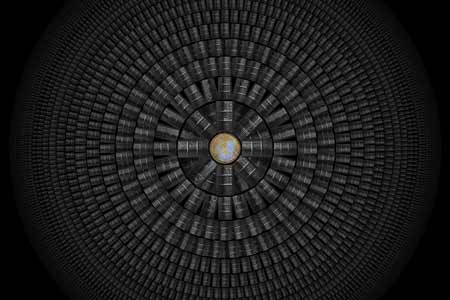
At first sight, for example, one work depicts a kaleidoscope of black shapes encircling the earth, but on closer inspection, it reveals the black shapes are in fact thousands of barrels of oil, and what appeared to be the earth is actually the rusty top of one of the containers. Every two minutes, 28,000 barrels of oil at 42 gallons each are consumed by gas guzzlers in the US, and the sheer gravity of issues like this is something Chris wishes to convey in an intriguing way to make people stop and think.

“It is astonishing that the average American person uses 30 times more resources than the average Chinese person. The US is 6% of the world’s population, yet we use a third of the world’s petroleum, a third of the world’s wood, and we produce a third of the world’s greenhouse gases.” Chris trips off the facts effortlessly, but not without fully comprehending their effects. He has said this before, not just to one person, but to packed audiences in their hundreds, even thousands. Yet it still feels like he is saying it for the first time, with just as much sincerity and spirit if not more than that initial revelation. In fact, Chris has just returned from a trip to Brisbane, Australia where he performed an intense session of media interviews, school workshops and talks. His work means he has to travel extensively, and the gravity of his work certainly hasn’t compromised his sense of humour, as is evident now when I mention his carbon footprint. “I go halfway around the world to show my picture on jet trails,” he jokes. “Talk about carbon emissions.”
His website peaking at 250,000 hits a month is proof of a man who is really reaching people, awakening each to their individual responsibility. His online videos get up to 27,000 viewers. Something catches my attention in one, when he highlights the culpability that consumerism has in causing something much darker: in the middle of his speech Chris begins to talk about terrorism. I draw him in, asking if he believes consumerism is a breeding ground for terrorism. “I absolutely believe that,” he asserts emphatically. “I think it is no coincidence that al-Qaeda goes after the United States. America is such an exploitive country. We have been exploiting resources and cultures all over the world for centuries. Questioning why they are angry at us is not something that is being addressed in American culture, but it needs to be.” Indeed, Chris raises the question head on, in a harrowing yet brave piece of work entitled Constitution which appears to display the words ‘We the People’, but the detail exposes 83,000 Abu Ghraib prisoner photographs, equal to the number of people arrested and held at US-run detention facilities without trial, during the Bush Administration’s ‘war on terror’.
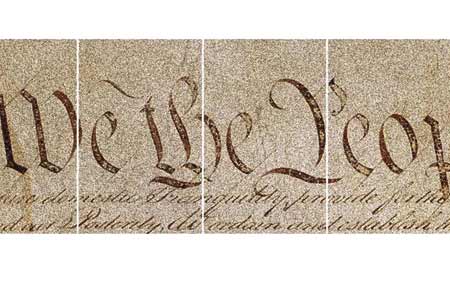
So it is not without good reason that Chris calls it a “frightening thing” when other countries seek to climb the material ladder, taking their lead from the US. He tells me of schools in India, China and Africa that teach the western way of life is the better way of life. The result is that those children who would have been taught the traditional craft of farming are instead setting their sights on the big city. “They move away from this centuries-old agrarian lifestyle that’s deeply connected to the earth and the surrounding communities, and instead the only thing they are qualified to do is work as a clerk in the big city somewhere, thinking they have improved their life. So this is where that education has got them – a ticket into the nastiness of urban chaos.”
I mention the Islamic understanding that the wealthiest of souls are those who are content with what they have. It strikes a chord with Chris. “That’s beautiful,” he remarks. “It’s one of the things that is a common thread in the world’s spiritual practices. It’s the philosophy of knowing oneself and being kind to others, rather than focusing on greed for material wealth. In America that is where we have got ourselves lost. We are one of the richest countries in the world and we are also one of the unhappiest. There is a much deeper purpose to being in this world. It lies in reconnecting to the earth, with each other, with other species. That’s where true happiness lies.”

Even though his line of work might cause disillusionment and a sense of futility, for Chris it is not an option. And that conviction of hope and expectation of change lies in its feasibility. “I have this naive idea in my mind that I cannot let go of,” he enlightens me, “and that is we could fix this overnight if we wanted to.” He refers to a recent report by the UN which discloses how much it would cost to feed all the hungry people on earth, and to bring clean water and healthcare to the 1.2 billion people who lack it. The total expense would be less than 5% of the world’s military budget, almost half of which is spent by the U.S. “It is so tantalising to see, sitting out there just beyond our grasp, solutions that would make the world a magical and joyful place for everyone. I am beginning to experience things in my life that I never thought I would, like a dawning sense of inner peace and even some happiness. So in that way, yes I am hopeful.”
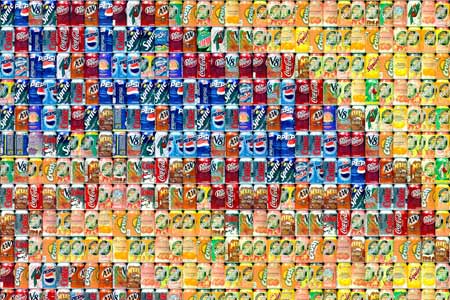
Throughout his fluid rhetoric, there is little hint of cynicism in Chris’s voice. His case is put eloquently, his logic nothing less than viable, thus his quest is all the more worth pursuing. Even though he is acutely aware of the slow motion apocalypse that mankind has affected, while we cannot reverse the damage caused, we can certainly harness its reins. We might be engulfed by the darkness, but lighting a candle has never been so vital.
www.chrisjordan.com
Bookmark this |
|
Add to DIGG |
|
Add to del.icio.us |
|
Stumble this |
|
Share on Facebook |
|
Share this |
|
Send to a Friend |
|
Link to this |
|
Printer Friendly |
|
Print in plain text |
|

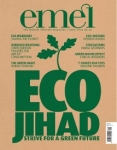

Comments
0 Comments